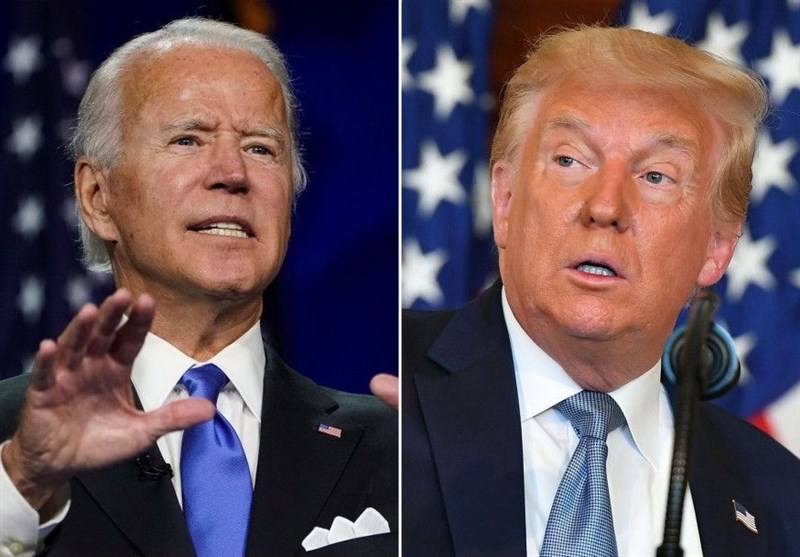BY: Valeria Rodriguez

PEJOURNAL – On November 3, the presidential elections will be held in the United States and despite the fact that the polls indicate that the Democratic candidate is ahead, nothing has yet been given.
So far, most polls put Democratic candidate Joe Biden at the head of the preferences over Republican candidate Donald Trump, who in his first virtual fundraiser for his re-election raised $ 20 million and admitted that he will invest from his own fortune in his re-election. Let’s remember that in 2016, Trump invested 60 million of his assets to win the elections.
Although polls can play an important role in terms of public support for candidates, it does not mean that they can predict who may win the election.
The indirect vote and the electoral college in The United States
The United States has a very particular characteristic when it comes to the presidential election and it has to do with the electoral system.
Here, the one with the most votes does not win, but the one who gets the most votes in the electoral College.
In fact, in 2016, Hillary Clinton had obtained 3 million more votes than Trump and yet it was the latter who won the elections after obtaining three of the states with the highest number of votes in the electoral college (Pennsylvania, Wisconsin and Michigan).
Since 1964, the electoral college consists of 538 votes of which 270 votes need to be obtained to win a presidential election.
Each electoral college depends on the number of votes that each state has, which in turn depends on the number of inhabitants that are reflected in the House of Representatives of the Congress and the Senate.
Therefore, there are states that have more representatives than others and they are the ones that compete for each candidate.
An example of this is California, which has 38 million inhabitants, 53 members in the House of Representatives and 2 in the Senate, therefore the electoral college of California has 55 votes.
Florida, for its part, has 19 million inhabitants, 27 members of the House of Representatives and two senators, therefore its electoral college is 29 votes.
Reds, blues and purples
Another characteristic that the United States has has to do with the way each state suffers and it is here that they are divided into three categories; reds, blues and purples.
These categories allude to electoral trends related to Republicans (red), Democrats (blue) and those states that rotate their preferences, which are purple.
Although breaking with electoral tradition is not very common, in 2016, Trump managed to break the blue wall in four states that since 1992 have voted Democrats
(Pennsylvania, Michigan, Wisconsin and Mine).
Despite this, the purple states are still important to achieve electoral victory since they make up 156 votes of the total Electoral College and one of them is Florida where Biden surpasses Trump by just 3 points.
Trump’s campaign
Despite the bad experience in relation to the pandemic, popular demonstrations against racism and unemployment, Trump continues to have high acceptance despite being surpassed by Biden by at least 6 points.
The strategies you are using to get votes are directly related to political propaganda through the media and social networks.
In fact, Fox news was one of the networks that spread the possible candidacy of Trump for the Nobel Peace Prize for its support for the normalization of relations between the United Arab Emirates and Israel, as well as Bahrain and possibly Saudi Arabia.
In turn, in recent months he changed his belligerent speech to pseudo diplomacy, meeting with the prime minister of Iraq and agreeing to withdraw troops.
On September 11, he sent Pompeo to start the Doha talks between the Taliban and the Afghan government, in addition to announcing the withdrawal of troops from that region.
According to the Pentagon, it is expected that of the 8,600 soldiers in Afghanistan between 4,000 and 5,000 soldiers will withdraw in the next two months and finally by mid-2021 the remainder.
Despite its diplomatic turn of the screw in some respects, the Trump administration continues to use economic warfare through the imposition of economic sanctions on different countries, such as Lebanon.
The fundamental idea of Trump, following the position of Israel, is to destroy the resistance and for that reason he sanctioned political representatives close to the Hezbollah resistance movement and in the meantime let France play the diplomatic role there.
Despite the apparent American diplomacy, the American army has been denounced for carrying out military activities on the border between Syria, Iraq and Jordan, where terrorist movements resurfaced.